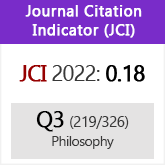The Fiduciary Constitution of Political Freedom. (Why Interpretive Conjunctures in Political Philosophy Matters?)
DOI:
https://doi.org/10.3989/isegoria.2017.057.02Keywords:
Political Freedom, Interpretive Conjuncture, Property, Principal/Agent, Locke, LiberalismAbstract
Some assumptions of contemporary mainstream political philosophy have neglected the historically indexed character of concepts such as political freedom, property or sovereignty, contributing to an anachronistic and inaccurate use of its meaning. However, its academic and social hegemony shapes the political philosophy «common sense» of our time. Locke is an example of how the liberal interpretive conjuncture that unfolded in the nineteenth century and consolidated in the twentieth has obscured some of the complexity and diversity of the intellectual and normative traditions he inherited. The reconstruction of Locke’s political philosophy from its fiduciary conception of political freedom contributes to make the meaning of some concepts that are critical for present normative theorizing recognizable again.
Downloads
References
Ashcraft, R. (1986), Revolutionary Politics and Locke's Two Treatises of Government, Princeton, Princeton University Press.
Barbeyrac, Jean (1706), «Preface», en: S. Pudendorf, Le droit de la nature et des gens, traduction du latin et preface par Jean Barbeyrac, Amsterdam, éditeur H. Schelte.
Blackstone, W. (1979), Commentaries of the Laws of England: A Facmisile of the First Edition of 1765-1769 , ed. Stanley N. Katz, 4 vols., Chicago, University of Chicago Press.
Cohen, G. (1995), Self-Ownership, Freedom, and Equality, Cambridge, Cambridge University Press. https://doi.org/10.1017/CBO9780511521270
Coleman, J. (2005), «Pre-Modern Property and Self-Ownership Before and After Locke: Or, When did Common Decency Become a Private rather than a Public Virtue?», European Journal of Political Theory, 4: 125-145. https://doi.org/10.1177/1474885105050446
Desan, S. (2004), The Family on Trial in Revolutionary France, Berkeley, University of California Press. PMid:15064675
Domènech, A. (2009), «Droit, droit naturel et tradition républicaine moderne», en: F. Gauthier, M. Belissa et Y. Bosc (dirs.), Républicanismes et droit naturel à l'époque moderne. Des humanistes aux révolutions des droits de l'homme et du citoyen, París, Éd. Kimé, pp. 30-48.
Dunn, J. (1969), The Political Thought of John Locke, Cambridge, Cambridge University Press. https://doi.org/10.1017/CBO9780511558436
Fell, John. (1659), The Interest of England Stated , 20th of July.
Fitzmaurice, A. (2014), Sovereignty, Property and Empire, 1500-2000, Cambridge, Cambridge University Press. https://doi.org/10.1017/CBO9781139924306
Franklin, J.H. (1978), John Locke and the theory of sovereignty, Cambridge, Cambridge University Press.
Goldie, M. (1980), «The revolution of 1689 and the structure of political argument», Bulletin of Research in the Humanities, vol. 83, n. 4, pp. 473-564.
Goldie, M. (1980), «The roots of true wiggism, 1688-94», History of Political Thought, vol. 1, n. 2, pp. 195-236.
Goldie, M. (ed.) (1999), The Reception of Locke's Politics, London, Pickering & Chatto, vol. 1.
Gordon, R.W. (1995), «Paradoxical property», en: J. Brewer y S. Staves (eds.), Early Modern Conceptions of Property, London/New York, Routledge, pp. 95-110.
Gough, J.W. (1950), John Locke's Political Philosophy: Eight Studies, Oxford, The Clarendon Press.
Grant, R.W. (1987), John Locke's Liberalism, Chicago, The University of Chicago Press. https://doi.org/10.7208/chicago/9780226306919.001.0001
Grant, R.W. (2003), «John Locke on Women and the Family», en: John Locke, Two Treatises of Government and A Letter Concerning Toleration, edición de Ian Shapiro, New Haven/London, Yale University Press, pp. 286-308. PMid:12579053
Grocio, H. (1987 [1625]), Del derecho de presa; Del derecho de la guerra y de la paz: textos de las obras "De iure praedae" y "De iure belli ac pacis", edición bilingüe, traducción, introducción y notas de Primitivo Mari-o Gómez, Madrid, Centro de Estudios Constitucionales.
Harrison, J. y P. Laslett (1965), The Library of John Locke, Oxford, Oxford University Press.
Hooker, R. (1622), Of the Laws of Ecclesiastical Polity, London, William Stanbye.
Hundert, E.J. (1977), «Market Society and Meaning in Locke's Political Philosophy», Journal of the History of Philosophy, vol. 15, n. 1, pp. 33-44. https://doi.org/10.1353/hph.2008.0661
Kant, I. (1902-), Kant's gesammelte Schriften , hrsg. von der Preussichen und der Deutschen Akademie der Wissenschaften, Berlin.
Lamprecht, S.P. (1955), Our Philosophical Traditions: A Brief History of Philosophy in Western Civilization, New York, Appleton-Century-Crofts. PMid:13294818
Larkin, P. (1930), Property in the Eighteenth Century. With Special Reference to England and Locke, Dublin/New York, Cork University Press.
Laski, H.J. (1936), The Rise of European Liberalism: An Essay in Interpretation, London, George Allen & Unwin Ltd.
Laslett, P. (1956), «The English Revolution and John Locke's Two Treatises of Government», Cambridge Historical Journal, vol. 12, pp. 40-55. https://doi.org/10.1017/S1474691300000329
Locke, J. (1975), An Essay Concerning Human Understanding, edición de Peter H. Nidditch, Oxford, Clarendon Press. PMCid:PMC1311878
Locke, J. (1988), Two Treatises of Government, ed. Peter Laslett, 2nd. ed., reprinted, Cambridge: Cambridge University Press. https://doi.org/10.1017/CBO9780511810268
Locke, J. (2015), Dos Tractos sobre el gobierno y otros escritos, traducción y edición de David Mielgo, Madrid, Biblioteca Nueva.
Macpherson, C.B. (1962), The Political Theory of Possessive Individualism, Oxford, Oxford University Press.
Mundó, J. (2005), «Autopropiedad, derechos y libertad (¿debería estar permitido que uno pudiera tratarse a sí mismo como a un esclavo?)», en: M.J. Bertomeu et al. (eds.), Republicanismo y democracia, Buenos Aires, Mi-o y Dávila editores, pp. 187-208. PMCid:PMC2424121
Mundó, J. (en prensa), «Propiedad, apropiación, desposesión. Repensar la libertad en la tradición republicana», en: M. Burgos y R. Gutiérrez (eds.), Derechos, democracia y pueblos. Debates desde el republicanismo democrático y el pluralismo jurídico, México: Instituto de Investigaciones Jurídicas, UNAM.
Nozick, R. (1974), Anachy, State, and Utopia, Oxford, Basil Blackwell.
Overton, R. (1934), A Remostrance of Many Thousands of Citizens (1646), citado en: Tracts on Liberty in the Puritan Revolution 1638-1647, William Haller, ed.
Pocock, J.G.A (1987), The Ancient Constitution and the Feudal Law, Cambridge, Cambridge University Press. https://doi.org/10.1017/CBO9780511571459
Purdy, J. y K. Fielding (2007), «Trustees, Guardians: Private-Law Concepts and the Limits of Legitimate State Power», Law and Contemporary Problems, vol. 70, n. 3, pp. 165-212.
Sabine, G.H. (1937), A History of Political Theory, London, George G. Harrap & Co.
Schochet, G.J. (1989), «Radical Politics and Ashcraft's Treatise on Locke», Journal of the History of Ideas, vol. 50, n. 3, pp. 491-510. https://doi.org/10.2307/2709574
Skinner, Q. (1979), The Foundations of Modern Political Thought, Cambridge, Cambridge University Press.
Stephen, L. (1876), History of English Thought in the Eighteenth Century, London, Smith, Elder & Co.
Strauss, L. (1953), Natural Right and History, Chicago, Chicago University Press.
Tierney, B. (1997), The Idea of Natural Rights. Studies on Natural Rights, Natural Law, and Church Law 1150-1625, Grand Rapids/Cambridge, William B. Eerdmans Publishing Company.
Tuck, R. (1979), Natural Right Theories. Their Origin and Development, Cambridge, Cambridge University Press. https://doi.org/10.1017/CBO9781139163569
Tully, J. (1980), A Discourse on Property. John Locke and His Adversaries, Cambridge, Cambridge University Press. https://doi.org/10.1017/CBO9780511558641
Tully, J. (1993), An Approach to Political Philosophy: Locke in Contexts, Cambridge, Cambridge University Press. https://doi.org/10.1017/CBO9780511607882
Wolfe, D.M. (ed.) (1944), Leveller Manifestoes of the Puritan Revolution, New York, Thomas Nelson and Sons. PMid:21434204
Wolin, S. (1960), Politics and Vision, Princeton, Princeton University Press. PMid:13702819
Wood, N. (1983), The Politics of Locke's Philosophy, Berkeley and Los Angeles, University of California Press.
Wooton, D. (ed.) (1986), Divine Right and Democracy: An Anthology of Political Writing in Stuart England, Harmondsworth, Penguin Books.
Wren, Mathew (1667), England's Monarchy Asserted, Oxford.
Downloads
Published
How to Cite
Issue
Section
License
Copyright (c) 2017 Consejo Superior de Investigaciones Científicas (CSIC)

This work is licensed under a Creative Commons Attribution 4.0 International License.
© CSIC. Manuscripts published in both the printed and online versions of this Journal are the property of Consejo Superior de Investigaciones Científicas, and quoting this source is a requirement for any partial or full reproduction.All contents of this electronic edition, except where otherwise noted, are distributed under a “Creative Commons Attribution 4.0 International” (CC BY 4.0) License. You may read here the basic information and the legal text of the license. The indication of the CC BY 4.0 License must be expressly stated in this way when necessary.
Self-archiving in repositories, personal webpages or similar, of any version other than the published by the Editor, is not allowed.














